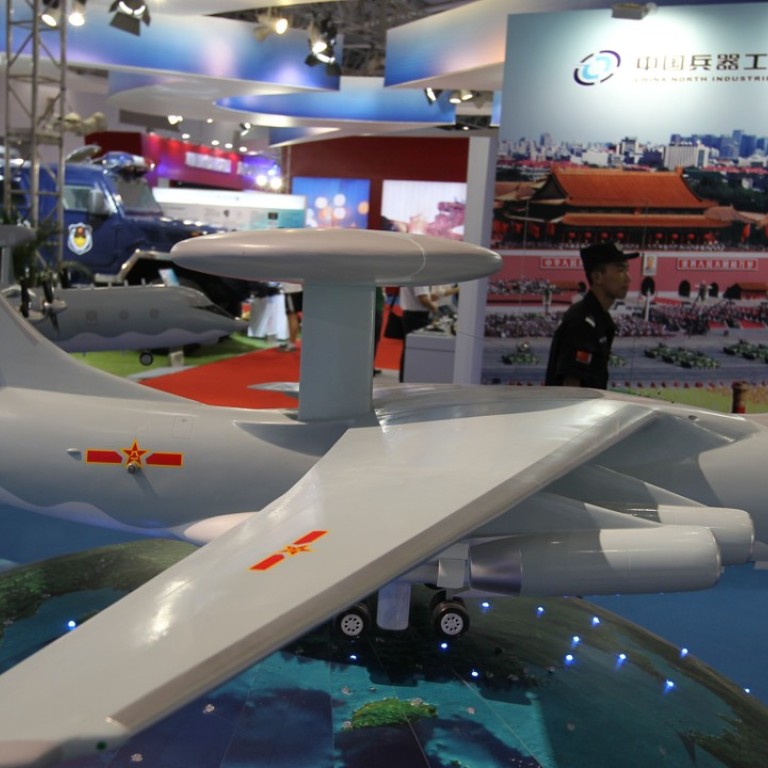
US slaps export controls on dozens of Chinese firms over ‘threat to national security’ as trade tensions escalate
Washington’s latest move targets key elements of Made in China 2025 policy
Washington has slapped restrictions on dozens of key Chinese companies – including state-owned developers of military-use technologies such as air defence and satellite systems – for reasons of national security.
The US Department of Commerce added 44 Chinese entities to its export control list on Wednesday for posing a “significant risk” to US national security or foreign policy interests in the midst of the heated trade spat between the world’s two largest economies.
In a direct challenge to China’s ambitions to become a technological superpower, driven by the Made in China 2025 policy, the new restrictions target some of the key elements of the policy including air defence systems, satellite communications systems, semiconductors and aerospace products.
Trade war new blow for US beef as industry tries to regain China foothold
Among the eight companies and dozens of their subsidiaries to be affected were the China Aerospace Science and Industry Corporation Second Academy – a research unit of the largest missile systems developer in China – and communications system manufacturer Hebei Far East Communication System Engineering.
Other research institutes under the state-owned technological giant China Electronics Technology Group Corporation (CETC) developing semiconductors, radar technology and microelectronic devices were also affected.
Others on the list included China Volant Industry, which exports and imports aerospace technologies, and China Hi-Tech Industry Import and Export Corporation.
The US controls will limit that companies’ access to products that the US commerce department deems could have dual military or civilian use and may deny them key components such as nuclear materials, telecoms equipment, lasers and sensors.
Markets reacted on Thursday, sending share prices for businesses related to those on the export control list spinning downwards.
GCI Science & Technology, the parent company of Hebei Far East Communications, and Glarun Technology, a subsidiary of CETC, dropped over 7 per cent on the Shenzhen exchange and 6 per cent on the Shanghai markets respectively.
The latest US move comes amid the escalating stand-off over trade between the two sides, where negotiations have stalled and Washington has threatened to levy 25 per cent tariffs on US$200 billion of Chinese goods.
Concerns on the trade front centre on the “Made in China 2025” initiative, which Beijing views as central to its development as a hi-tech powerhouse, but Washington sees as an existential threat to its global technological pre-eminence.
Trump may raise tariffs on US$200 billion of Chinese goods
Existing tariffs from the US on Chinese goods have already targeted this industrial policy, with 25 per cent duties placed on products such as machinery and equipment, parts and components in the information and communications technology sector, as well as engine and motor parts.

Announcing the latest measures, US trade representative Robert Lighthizer said that Washington needs to “take strong defensive actions to protect America’s leadership in technology and innovation”.
He added: “China’s government is aggressively working to undermine America’s hi-tech industries and our economic leadership through unfair trade practices and industrial policies like Made in China 2025.”
Washington has previously railed against Chinese intellectual property practises, such as forced technology transfers from US companies, and has tightened visa scrutiny for Chinese students seeking to study in strategic fields in the US.
Earlier this year it imposed crippling penalties on the Chinese telecoms giant ZTE over its alleged breaches of UN sanctions on Iran and North Korea, but lifted them last month.

